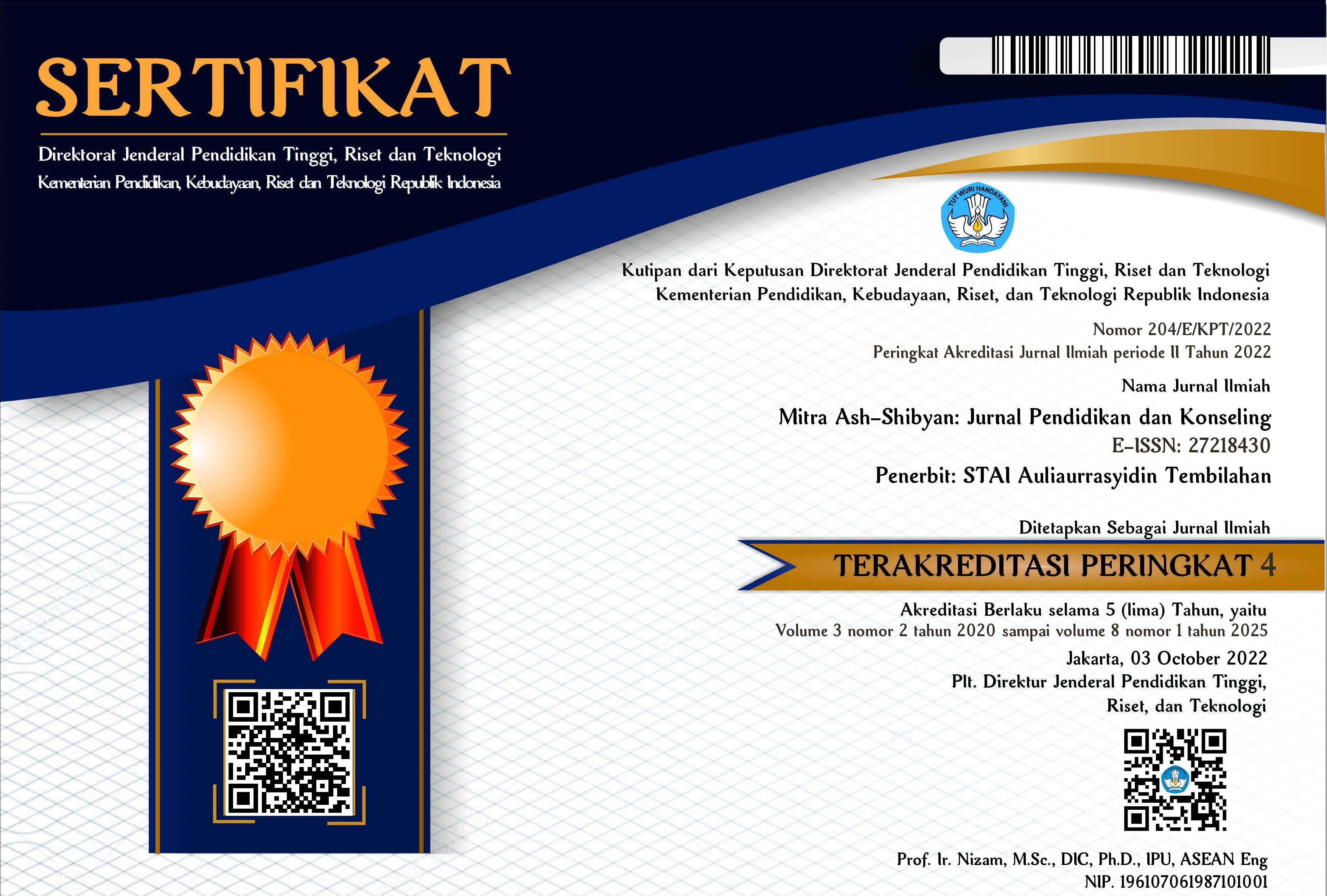Stimulasi Keterampilan Proses Sains Anak Melalui Model Pembelajaran Sains Berbasis Proyek
DOI:
https://doi.org/10.46963/mash.v4i01.222Keywords:
Early childhood, Project-based science learning, Science process skillAbstract
This study aims to improve the science process skills of children aged 5-6 years through a project-based learning model. This research is a type of quasy experiment with an equivalent time series design. The research subjects consisted of 88 group children, namely children aged 5-6 years from 6 Kindergartens in Sleman Regency. Data collection was carried out using observation. Then the data were analyzed using one way ANOVA and got the sig value. 0.00, which means that there is a difference in the mean ranking of process science skills after using a project-based science learning model, so the results of this study indicate that an effective project-based science learning model is used to improve science process skills of children aged 5-6 years.
Downloads
References
Broström, S. (2015). Science in Early Childhood Education. Journal of Education and Human Development, 4(2), 1.
Bundu, P. (2013). Penilaian Keterampilan Proses dan Sikap Ilmiah Dalam Pembelajaran Sains SD. Jakarta: Depdiknas.
Charlesworth, R., & Lind, K. K. (1979). Math and Science for young Children. New York: Delmar Publishing.
Creswell, J. (2012). Educational Research: Planing, Conducting, and Evaluating Quantitative and Qualitative Research (4 ed.). United States of America: Pearson.
Direktorat Pembinaan Pendidikan Anak Usia Dini. (2015). Kurikulum Pendidikan Anak Usia Dini, Apa, Mengapa, dan Bagaimana. Jakarta: Direktorat Pembinaan Pendidikan ANak Usia DIni.
Dos, S. E., Gonçalves, B. C., Oliveira, K. B., & Silva, M. B. (2018). Project Based Learning Applied to Technical Drawing. Education, 9, 479-496.
Du, X., & Han, J. (2016). A Literature Review on the Definition and Process of Project-Based Learning and Other Relative Studies. Creative Education, 7(07), 1079.
Hadi, S. (2015). Statistika. Yogyakarta: Pustaka Pelajar.
Hesti, D., & Somantri, E. B. (2015). Penerapan Pembelajaran Sains dalam mengembangkan Kemampuan Matematika Anak Usia 4-5 Tahun di Pendidikan Anak Usia Dini Sasana Balita Puspita Pontianak. Jurnal Edukasi Pendidikan Anak Usia Dini, 4(2).
Jacobs, G., & Crowley, K. (2007). Jacobs, G., & CrPlay, Projects, and Preschool Standards: Nurturing Children's Sense of Wonder and Joy in Learning. Corwin Press.
Jain, J., Lim, B. K., & Abdullah, N. (2013). Pre-service Teachers’ Conceptions of The Nature of Science. Procedia-Social and Behavioral Sciences, 90, 203-210.
Perdaningsari, A. P., & Kristanto, A. (2014). Pengaruh Model Pembelajaran Inkuiri Terhadap Kemampuan Sains Anak Kelompok A di Taman Kanak-kanak ABA. PAUD Teratai, 3(3).
Putra, S. R. (2013). Desain Belajar Mengajar Kretaif Berbasis Bisnis. Yogyakarta: Diva Press.
Rahman, S., M. Yasin, R., & M, S. F. (2012). Project-based Approach at Preschool Setting. World Applied Science Journal, 16(1), 106-112
Downloads
Published
Issue
Section
License
Authors who publish with this journal agree to the following terms:
1. Copyright on any article is retained by the author(s).
2. The author grants the journal, right of first publication with the work simultaneously licensed under a Creative Commons Attribution shareAlike 4.0 International License that allows others to share the work with an acknowledgment of the work’s authorship and initial publication in this journal.
3. Authors are able to enter into separate, additional contractual arrangements for the non-exclusive distribution of the journal’s published version of the work (e.g., post it to an institutional repository or publish it in a book), with an acknowledgment of its initial publication in this journal.
4. Authors are permitted and encouraged to post their work online (e.g., in institutional repositories or on their website) prior to and during the submission process, as it can lead to productive exchanges, as well as earlier and greater citation of published work.
5. The article and any associated published material is distributed under the Creative Commons Attribution-ShareAlike 4.0 International License







2.png)



